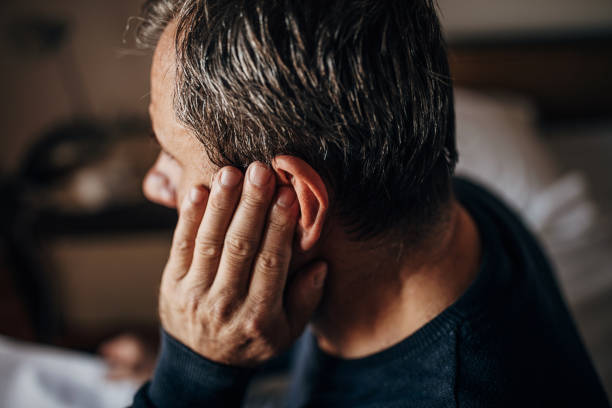Signs of an Ear Infection You Shouldn’t Ignore
Ear infections are a common problem that affect people of all ages, from young children to older adults. While some infections may clear up on their own, many require proper diagnosis and treatment to prevent long-term damage. Ignoring the warning signs of an ear infection can lead to worsening pain, hearing problems, or even permanent complications.
In this article, we’ll go through the key signs of an ear infection you should never overlook, why they happen, and when to seek professional help.

What Is an Ear Infection?
An ear infection occurs when bacteria, viruses, or fungi invade the ear. It can affect different parts of the ear:
Outer ear (otitis externa) – commonly called “swimmer’s ear,” often caused by trapped water or bacteria.
Middle ear (otitis media) – common in children, usually following a cold or sinus infection.
Inner ear (labyrinthitis) – less common but more serious, affecting balance and hearing.
Each type of infection has slightly different symptoms, but there are several warning signs you should never ignore.
1. Persistent Ear Pain
One of the most common signs of an ear infection is sharp or throbbing pain inside the ear. The pain may get worse when you lie down, chew, or pull on the outer ear.
Why it happens: The infection causes swelling and pressure behind the eardrum.
When to worry: If pain lasts more than 1–2 days, is severe, or affects sleep and daily activities.
2. Fluid or Discharge from the Ear
Any unusual fluid, pus, or blood coming from the ear is a red flag.
Clear or yellow discharge may suggest a ruptured eardrum.
Foul-smelling fluid often points to bacterial infection.
Bloody discharge needs urgent medical attention.
3. Hearing Loss or Muffled Hearing
Temporary hearing loss is a very common sign of middle ear infections. It may feel like your ear is blocked or filled with water.
Why it happens: Fluid build-up behind the eardrum prevents sound from travelling properly.
When to worry: If hearing doesn’t return to normal after treatment, or if hearing loss comes on suddenly.
4. Ringing or Buzzing in the Ear (Tinnitus)
Some ear infections can cause tinnitus, which feels like ringing, buzzing, or humming inside the ear. While tinnitus can have many causes, if it appears suddenly alongside pain or fluid, it may be linked to infection.
5. Dizziness, Vertigo, or Balance Problems
The inner ear controls balance. When it’s affected by infection, you may feel dizzy, unsteady, or like the room is spinning. This can be dangerous, especially for older adults.
6. Fever or General Illness
Many ear infections, particularly in children, are accompanied by fever, fatigue, or irritability. A fever indicates the body is fighting an infection and should not be ignored.
7. Pressure or Fullness in the Ear
A sensation of fullness, pressure, or blockage in the ear is another key symptom. This usually means fluid or pus has built up behind the eardrum.
8. Pain That Spreads to the Jaw or Neck
Sometimes ear infection pain radiates beyond the ear. If you feel pain spreading to your jaw, teeth, or neck, it’s a sign the infection may be worsening.
9. Swelling or Redness Around the Ear
If the outer ear looks red, swollen, or tender, it may be a sign of outer ear infection (otitis externa). In severe cases, swelling may extend to the face or neck — this requires urgent treatment.
10. In Children: Tugging at the Ear or Unexplained Crying
Children may not always say they have ear pain. Instead, they might tug at their ears, have trouble sleeping, or cry more than usual. Ear infections are one of the most common reasons for sudden fussiness in babies and toddlers.

When to See a Doctor Immediately
Seek professional care if you experience any of these:
Sudden or severe hearing loss
High fever with ear pain
Blood or pus coming from the ear
Severe dizziness or balance problems
Symptoms lasting more than a few days without improvement
How Ear Infections Are Treated
Treatment depends on the type and severity of the infection:
Outer ear infections may be treated with antibiotic drops and careful cleaning.
Middle ear infections sometimes clear on their own but may require antibiotics.
Inner ear infections may need urgent medical care to prevent complications.
Professional earwax removal may also be recommended if wax is contributing to blockages and infections.
Preventing Ear Infections
Simple habits can help lower your risk:
Keep your ears dry after swimming or bathing.
Avoid inserting cotton buds or sharp objects into your ears.
Manage allergies and sinus problems promptly.
Strengthen your immune system with a healthy diet and lifestyle.
Get your ears checked regularly if you’re prone to infections.

Final Thoughts
Ear infections should never be ignored. What may start as mild discomfort can quickly develop into a painful or even dangerous condition if left untreated. Recognising the warning signs early — from persistent pain and fluid discharge to dizziness and hearing loss — is the best way to protect your ear health.
At Cleaner Ears, we specialise in safe and effective ear care, including microsuction earwax removal, which helps prevent blockages that can lead to infection. If you suspect you have an ear infection or are experiencing symptoms you’re unsure about, book an appointment today for expert advice and professional care.

